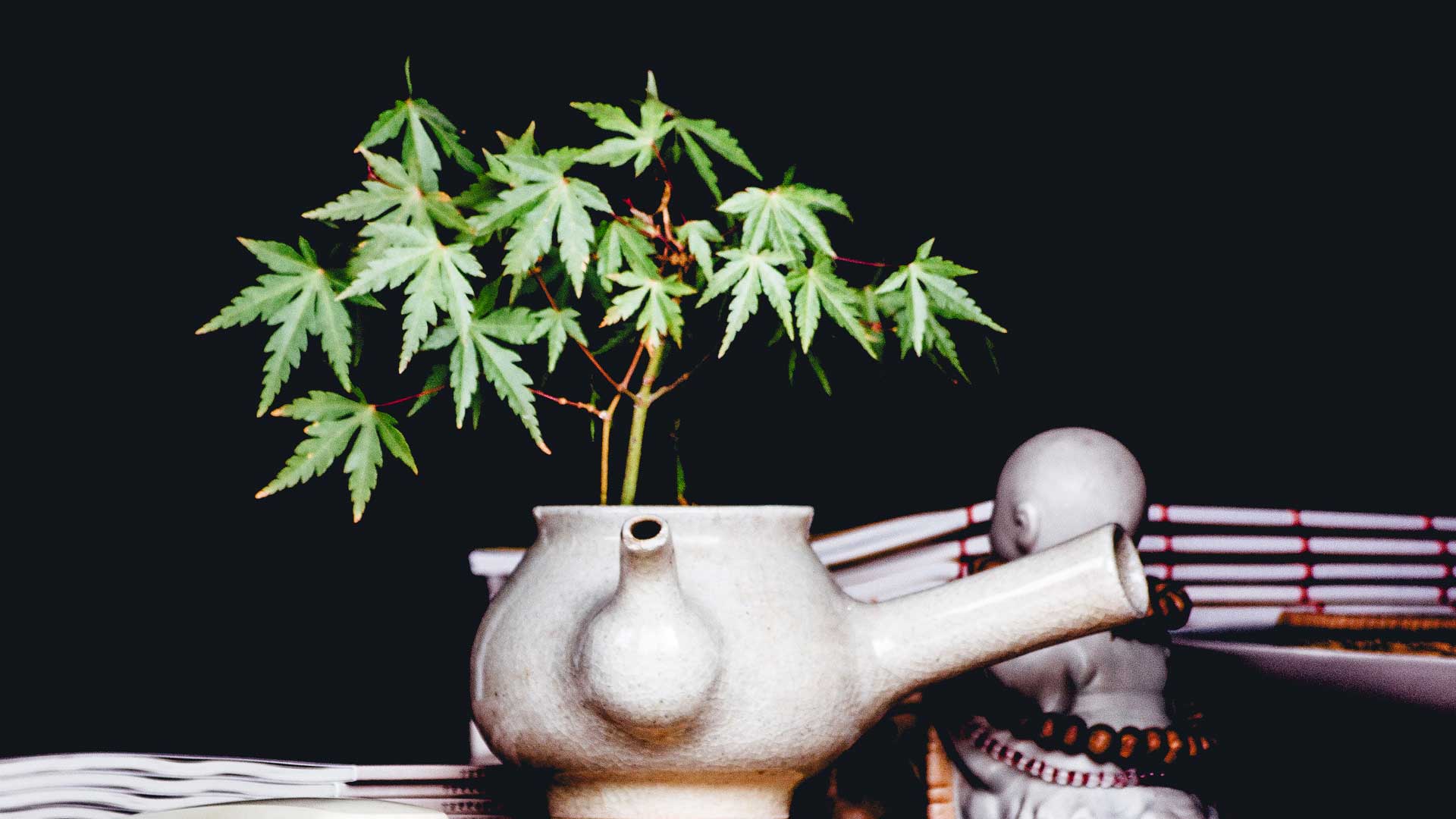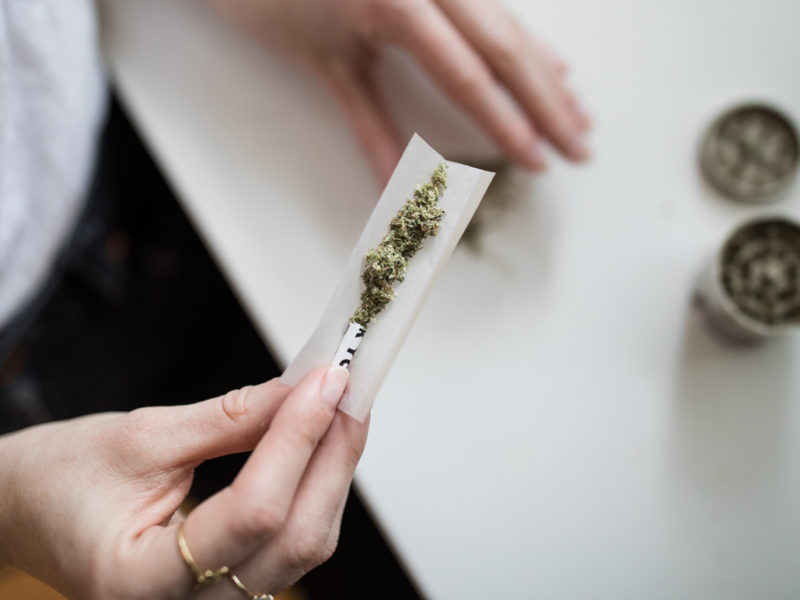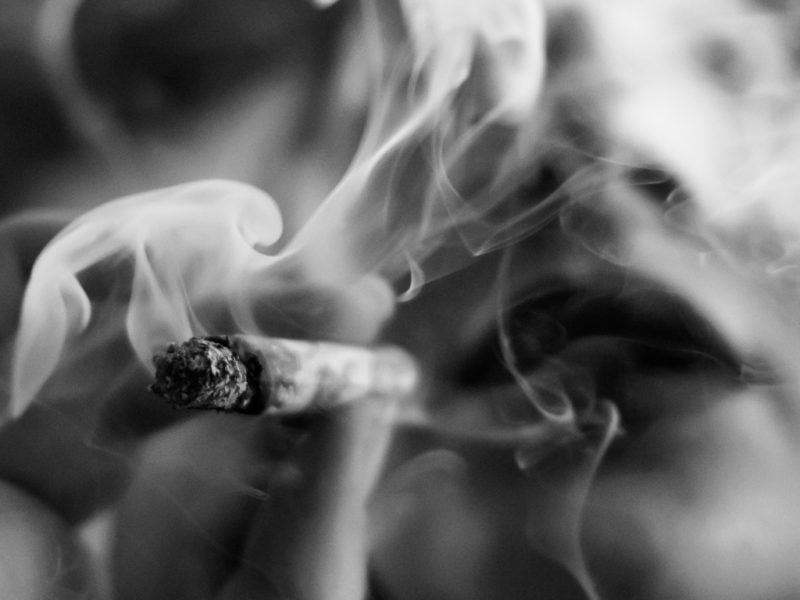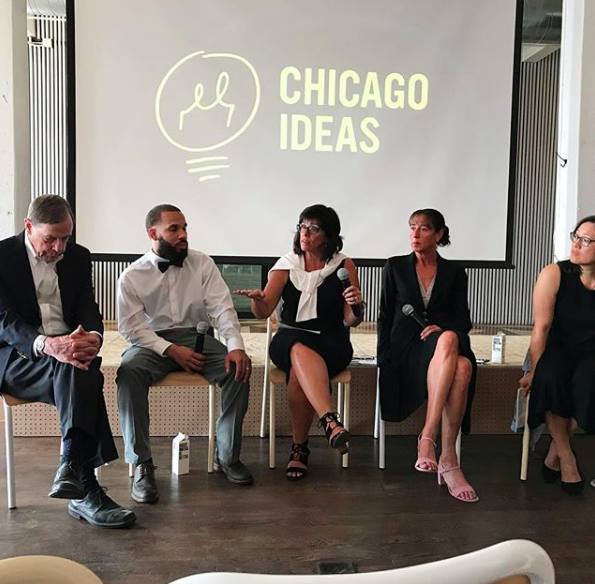
Chicago NORML’s Donte Townsend on the Legalization of Cannabis in Illinois
Donte Townsend is the communications director for Chicago NORML, a regional chapter of the NORML Foundation that specifically strives to educate and motivate communities of color to destigmatize and accept the cannabis plant as a vehicle for health, wellness, political and economic empowerment. Donte was also a panelist at our recent roundtable discussion on cannabis legalization in Illinois. We asked him to expand on his unique perspective and enlighten us further on the issues — and potential benefits — the underserved communities Chicago NORML serves may see in the face of the normalization and legalization of marijuana sales. Here’s his take:
Tell us more about Chicago NORML, how you got involved, and what inspired you to be a leader in this industry?
Chicago NORML is a regional chapter within Illinois NORML. We focus on cannabis education and social justice in the underserved neighborhoods of Chicago, such as the South, East & West sides.
I got my inspiration to be a leader in this industry by wanting more for my people, and also understanding that the cannabis industry can be a tool to create jobs and opportunities to train a demographic of people within Chicago who have a natural interest in cannabis and who deserve to have a fair opportunity to enter this industry.
Chicago NORML’s goal is to positively change the culture of perception around the legalization of marijuana. Can you share a few examples of how your team is tackling this?
It starts by working with the lawmakers. They have the power to do the right thing by partnering with Chicago NORML. When cannabis is discussed in Illinois it’s only and always spoken of in the conversation of consumption and consumerism. We work to use cannabis as a vehicle for change. Cannabis may be offensive to those who oppose the use when thinking of it as an illegal drug. Chicago NORML wants to be responsible for taking the stigma off of cannabis by using its revenue to rejuvenate these underserved communities. Imagine parks, Chicago Public Schools, grocery stores, abandoned buildings (residential and commercial), rehabilitation facilities, shelters, etc., in poor, violent neighborhoods being redeveloped and rejuvenated all through “WEED MONEY.” I strongly believe it can change the city, but we have to change our perception first. Create the change.
In your opinion, what is the biggest challenge the state of Illinois faces when it comes to the legalization of marijuana sales?
Illinois doesn’t have any challenges to me when discussing legalization. The people have already spoken. It breaks down to who is allowed to grow and sell, who will be reaping the benefits of the money made, and structuring what’s to come to ensure who is already invested in this industry gets a sole stake in the cannabis industry without the risk of competition.
When looking at the Illinois medical cannabis pilot program, there were limited licenses awarded. Considering the fees associated with application, the door was closed with no hope of entering to anyone who was not rich.. Illinois needs to focus on an equity bill that will help small businesses thrive in this industry. It should give prospective cultivation and dispensary owners, such as myself, a chance to compete. Other states, such as California and Massachusetts, have programs as well, but they are flawed. We have a chance to dodge that bullet. Oakland, California promised to set aside $3.4 million in cannabis tax revenue to offer no-interest loans to startup marijuana businesses that qualified for the city’s equity program. The intentions behind this program were good: to right the wrongs of the war on drugs, which unfairly cracked down on black and brown people. The bad news is that it won’t be available for several months, and the startup businesses relying on that help — many of which are hanging on by a thread — may not be around by then. We need to create a program with Chicago NORML that is specifically tailored to Illinois to ensure we do the right thing by the people.
What processes do you believe should be in place prior legalization?
Expungements of cannabis cases and cannabis related charges of those CURRENTLY doing time should be a first priority. The thought of people doing time for selling weed while dispensaries sell sickens me. Expungements cost money, it doesn’t happen just because it’s proposed. There needs to be money set aside for these expungements to ensure that these issues are handled properly. If not, it’s a program set up to fail like most programs that are catered to minorities.
It should also be put in language when writing these laws to ensure money is set aside to fix neighborhoods impacted by the war on drugs, not simply promises based on failed ideas from other legal cannabis states. These laws should include every neighborhood–even those that have rejected cannabis businesses in their wards. I’ve heard in recent conversations that neighborhoods who oppose cannabis businesses won’t be able to get benefits of cannabis tax dollars, which is set up for failure because southside neighborhoods (where majority of cannabis offenses occur) don’t accept the businesses in their neighborhood. Hyde Park is a prime example of this. We need a parallel program that’s run by true cannabis advocates and real neighborhood advocates who see the potential in change through cannabis tax dollars.
How can our community get more involved with Chicago NORML?
We have our monthly board meetings at Soul and Wellness, located at 2007 S Blue Island Ave in Pilsen the first Sunday of every month.
You can also find us on:
Our website: ChicagoNORML.org
Instagram: @ChicagoNORML
Facebook: Chicago NORML
Keep up with Donte Townsend on Instagram.




